Aisha Moodie-Mills: Victory Through Visibility
Aisha Moodie-Mills on the power of coming out and the impact of LGBT visibility on our political system

“I can remember growing up and my grandfather listening to Rush Limbaugh on the radio,” says Aisha Moodie-Mills. “And this is before he became such a batshit-crazy lunatic, right? This must have been in the early ’80s or so. But my grandparents were not political people. They voted. I know, on Election Day, they voted. But we did not have debates around our table about elected officials and those kind of things.”
That’s why it came as a surprise when the 17-year-old Moodie-Mills was bitten by the political bug. The high school junior was selected by her civics teacher to participate in two different programs aimed at giving teenagers hands-on experience with government. She was hooked.
“I wanted to be a part of those systems that really were touching and were coloring the way our society worked,” she says.
Born in San Diego but raised in Burlington County, New Jersey by her grandparents, Moodie-Mills came from a middle-class family. She was starkly aware of the racial and social dynamics that existed in the society around her. Racial tension was a constant issue. One of her closest friends experienced violence first hand. “She and her family were attacked in their home in the middle of the night by skinheads,” Moodie-Mills remembers. Unfortunately, the threat of violence was something that followed from home to school. “I actually went to junior high school with a kid who was one of the skinhead leaders in our area.”
Even more striking — and influential in the course of her life — than her comprehension of racism was Moodie-Mills’ understanding of economic inequality, which fueled her sense of social justice, and the role government can play as an equalizer.
“As I looked around, there were people living in poverty,” she says. “People who were doing everything they could to try to make it, but didn’t necessarily have all the tools and the access and opportunity to.” She deduced that it was government’s role to be helping those people — and it was failing in its duties. “At the very least, we should have some sense of an equal playing field, an equal opportunity to compete in the world. And I didn’t see that happening.”
After graduating college, Moodie-Mills went to work for an educational policy organization before eventually entering partisan politics. She first cut her teeth in that field by working for former Dallas Mayor Ron Kirk’s 2002 campaign to represent Texas in the U.S. Senate. For someone still closeted in their professional life, it was an eye-opening experience.
“There were at least five gay people on the campaign,” she says. “And we had a trans woman who was Ron’s right-hand person and scheduler. And these aren’t just staff, these are the deputy campaign manager and his assistant, all key senior people.”
It was a time when Texas was “really the lone lost cause” for progressives. That Moodie-Mills found herself surrounded by like-minded, politically active LGBT people was a surprise — but also an affirmation of her beliefs in the political system. “That gave me hope,” she says. “It gave me this sense, that even though we may not have power politically, what I know to be true is that ultimately people are power.”
Even though the campaign ended in loss, it’s that hope for something better, and in people power, that has kept Moodie-Mills in the political arena. She’s since worked for the Democratic Senatorial Campaign Committee, the Congressional Black Caucus and the Center for American Progress. But the personal life lesson that has most resonated with her is the importance of living one’s life openly and authentically. It’s something Moodie-Mills stresses and lives by, whether in her current role as president and CEO of the Victory Fund & Institute or in her Politini radio show and podcast, marketed as “politics and pop culture served up with a twist,” which she co-hosts with her wife, Danielle.
“Representation is power,” says Moodie-Mills of her work with Victory. “We are creating leaders in communities that perhaps haven’t otherwise had an LGBT person in leadership, where they’re visible, and they can see them and feel them and touch them as a neighbor, as simply a human being, not as an ‘other.'”
METRO WEEKLY: Tell me about your childhood.
AISHA MOODIE-MILLS: I’m the most Southern Jersey girl you’ll probably ever meet. I was born in San Diego, but I came to New Jersey when I was about four months old. And I was raised by my grandparents, who are black people from South Carolina. Southern Christian folks from South Carolina. They had three biological children, and raised six of us. My grandmother’s sister passed away, they took her two kids, and then they ultimately ended up raising me as well. And so even though I’m a Jersey girl, very Northern in my aggression, I’m very Southern in my mannerisms.
I grew up in a wonderful middle-class suburb called Willingboro, that was an African-American suburb of Philadelphia, in South Jersey. And it reminds me of what we’d think of Prince George’s County today. That’s what my town was like. I was a pretty astute kid. I was the kid who got great grades, and was the most likely to succeed, and all those other things. And beyond that, was always very socially conscious and socially-minded, and political. So I would always run for office in my school. I was the head of the student body government, and I was the head of the Key Club, and the head of this and the head of that.
MW: What sparked your interest in politics?
I had this teacher, Mrs. Nancy Cunningham. She and I are still Facebook friends today. Mrs. Cunningham was our government and politics teacher. And she was the advisor for a program called Youth and County Government. It took high school students and placed us with county officials as a way for us to understand how government worked.
I was one of the people that Mrs. Cunningham selected to be part of the program, which was very prestigious for me, because there were five of us. That was my first glimpse into government, and also politics, but more so government, what it looked like to govern. In New Jersey, we have a very interesting governing system. Our counties are run by what we call a board of chosen freeholders. It’s not the typical county government, in terms of language. And so it was very interesting for me, in 11th grade, to get a really close insight into how county government worked.
I also was placed with one of the county judges, because I thought I wanted to go to law school at one point. And to be able to sit with the judge and to understand two things: the way that the county government worked, for the people or not for the people; and to also see the judicial process at play. And that experience really struck, for the first time, my passion and excitement about government politics.
MW: What helped shape your passion for activism?
Later that year, I was selected by Mrs. Cunningham to represent my school at Girls State. Girls State and Boys State are these amazing programs that bring representatives from high schools all over the state together, and we go and camp out on a college or university and form a mock state government. For me, that experience was the most invigorating thing I’d ever done. It completely transformed my idea of myself, in the world and the impact I could have — in my community and in my country, more broadly.
Girls State was extremely successful for my party. I became the State Party chairwoman, and got our governor elected. So she and I were an amazing duo. And it was also really poignant because we elected, at my Girls State, the first African-American Girls State governor that New Jersey had seen. That was a really big deal for me, too.
When I went onto college I got very involved in my Black Student Union, Social justice work and doing nonprofit work, working particularly with young people, and really helping. By that point, I thought I wanted to be a psychologist. I wanted to go into adolescent psychology and I wanted to save all these young people, who did not have the structures around them to be successful. And then by the time I got towards the end of college, it occurred to me that no matter what we do as individuals — and I know we have this idea of liberty and freedom and individualism and all these other things that supposedly shape and frame America — but, at the end of the day, if we do not have the structures and the systems in place for individuals to be able to climb the rungs of the economic ladder, or be able to succeed, then people, as individuals, can’t succeed. We don’t do this by ourselves.
The truth is that our government matters. And it matters that we as a society band together to create the conditions that are equalizing. So I knew then that I was going to go into something that would be more policy-oriented, as opposed to more individual-oriented. And then I realized that I was going to go into something broader than that. And so, when I graduated, my first job was at an education policy organization, because I wanted to be the person who was creating the rules, essentially.
And then I ended up going and working in politics, because I wanted to elect the people who created the rules that we all play by, and who create the opportunity for us, in our society. And that’s really been the driving force behind everything I’ve done. Obviously, I care about racial justice issues, I care about LGBT equality and gender equity, and those are because the politics are very personal for me. I very much see politics and government as a conduit to change. And I think that’s something I got early, early on.
MW: When did you first suspect that you were different from other girls, in terms of who were attracted to?
MOODIE-MILLS: You know, hindsight is always twenty-twenty. I had my first lesbian relationship my freshman year in college. So cliche, right? In hindsight, though, I probably knew by the time I was a little girl that I was very different, and that I — not necessarily that I had different attractions, but I was a different kind of girl.
I was a tomboy my whole life, from knee-high. I was always very anti-gender norms. Like, “No, I’m not wearing the frilly dress and the little stupid shoes. I’m actually going to wear my baseball cap and I’m going to go out like that, and I don’t even care.” From a personality standpoint, I’ve always been very anti-gender norms. I was always the more assertive girl, the girl who spoke out of turn, the girl who was the leader, the girl who was very independent. The girl who spoke truth to power, the person who pushed back against common assumptions about things. I always knew that I was different in that way, that I was not the stereotypical, gender-normed type of female. And the idea of anyone trying to make me that used to piss me off, so I would revolt against it in really big ways.
By the time I was an adolescent, I had obsessions with famous women, which, in hindsight, were probably attractions. Whitney Houston, I lived and died for. To this day. Whitney Houston always struck something in my soul. I had this major, epic scrapbook that I kept of every single article and picture of Whitney Houston from 1987 through 1993. But I never was attracted to friends. It wasn’t like, oh, the girl at school, and I kind of like her. I didn’t really have much of that until I got to college. And then, in college, it became, “Oh, a-ha, that’s what’s happening here. OK, we’re going to explore this.”

MW: When did you first come out to somebody in your professional life?
MOODIE-MILLS: Well, I mean, [the Kirk] campaign was a thing. So I left the campaign and came back to work for the Democratic Senatorial Campaign Committee, and came out there to a couple of my colleagues. And then I went to work for the Congressional Black Caucus, and I wasn’t out at all. I ran their political action committee. I wasn’t out at all.
MW: Why?
MOODIE-MILLS: In hindsight, because I placed assumptions on them that I wouldn’t be welcomed in the black community, or I wouldn’t fit in, if I was a lesbian and people knew. And I moved through my experiences in the black community — and this is not an indictment of them, but really a reflection on myself — allowing them to make up their own assumptions of me, because I was afraid, in many ways, to not fit in, to be different.
And when I came out, when everybody found out in my professional network, Danielle and I came out on the front page of The Washington Post during marriage equality in D.C. It was the first page of the Style section or something. They did this article, “Waiting to Wed Where it Matters.” And Danielle and I are on this whole thing, and doing marriage equality. And that’s how all of my professional network found out, because they saw The Washington Post.
That following September, I went to the Congressional Black Caucus’ annual dinner at their annual Legislative Conference. All these members are coming up to me, members who had known me and worked with me for years. And they were like, “Oh, my god. I had no idea. Where is she? And how come you never told me? And how come you never introduced her?” And I’m like, “I don’t know. It just didn’t…” And they’re like, “Congratulations. And we are very proud of you.” I received lots of love and warmth through my peer network and my professional network.
Now, let’s be fair. There are a lot of haters, and there were a lot of people who were completely turned off and uncomfortable. “Oh, wow, she’s a lesbian. I don’t really know what to do with that.” Those people really weren’t my friends, anyway. But for the most part, I received so much love and support, more than I could have ever imagined. And what occurred to me is the power of coming out. And the critical importance of us showing up, and being visible, and being fabulous as Danielle and I would say. Because it’s only through coming out and being visible that we allow people to know us authentically for who we are. And I never allowed people to know me for who I was. So I would never say that the Congressional Black Caucus was in any way unwelcoming, because I never let them know me.
The lesson I learned is that it’s not enough to be standoffish and to make assumptions about how communities may or may not receive you. Because generally that’s all false, reflexive insecurities that are bubbling up in your own head. And the power for me was realizing that when I come out, when I live authentically, when I allow people to know me and know my family, and my wife, and to really be a part of who we are, that’s what brings us together. And so ever since then, we’ve been, “living, loving and laboring out loud.” And in color. In a very vivid way.
MW: How else did coming out publicly impact your lives?
MOODIE-MILLS: After we got married, Essence magazine ran our wedding pictures. And we were the first lesbian wedding to be featured in Essence‘s online wedding column — that’s their most popular thing, called “Bridal Bliss.” We were the first lesbian couple in Bridal Bliss. That was a huge deal in the African-American community. Five thousand people commented on this thing. It was being shared all over the place. And 99 percent of the comments were affirming and warm and supportive. It was just another reminder to us that, surely the African-American community is not more homophobic than any other community. Because I know a whole lot of white people who are in the closet, too. The Asian community, Latino community. There is not a hierarchy of homophobia that for some reason, one community has more than the other.
What I learned from that is that there’s so much power in visibility. Danielle and I set about really being intentional that our careers, moving forward, would be visible. They would be about us allowing people to know us more intimately, perhaps, than others may. About creating a public brand and presence and image where there isn’t one.
When we were planning our wedding, we looked through magazines and everywhere for black lesbian couples. Models of black lesbian couples. Black lesbian professionals, for that matter. There aren’t any. There are none in Hollywood, except Wanda Sykes, who we can’t keep calling upon. And so through those experiences coming out, we realized that we have absolutely got to be the models. And we have to be the image. And we have to do the work, and we’ve got to be visible. Because we don’t have visibility in our community. And that’s what’s transformative. Images matter. And so, really, moving forward, much of what you see developing in my career, through my media and my advocacy, and just the way I do the work, has been about surely representing LGBT people, people of color, and our interests and our ideals, at every level of government, as well as in the public sector, in the public debate. And doing that in a very visible way.
At least twice a week, I get Facebook messages from strangers, like, “Keep doing what you’re doing, because that makes us proud.” And the world needs to see positive images of black lesbians doing amazing things. Or, quite frankly, just doing nothing. Just out there.
MW: Is that what Victory Fund is about, the idea that if you can elect the gay councilman or councilwoman, then it’s not such a stretch to be more tolerant of gay marriage or gay adoption, because I know somebody. Is that the purpose?
MOODIE-MILLS: Absolutely. That’s it. You just said it. Here at Victory, we invest in people. We are cultivating the pipeline of leadership for the future. Not just the future of the LGBT movement, but the future of America’s politics — and of global politics, for that matter, with our global program. And that visibility matters. With every single election that we win, we are transforming communities. We are transforming the political landscape. What it looks like, who’s a part of it, who has a voice, who’s sitting at the table? And that’s exactly what excites me about Victory, and why I was thrilled to come and do this work. Because it is the next progression for me of this idea of visibility really mattering, and representation being power.
Representation is power. And we have to stand up and we have to represent for ourselves and our communities. We’ve got to elect people who are out there representing for us as well. And what we do here is we provide LGBT leaders with the tools, with the training, with the support that they need to go off and become really awesome, visible leaders in their communities, at every level of government, at every level of public service. So while the people that we train, most of them go off and run for office, in the short term, everyone else who comes to our trainings is going and leading nonprofit organizations, or sitting on boards and commissions, or they’re doing really great work in their communities, in their companies, at a visible level. And that’s what leadership is about. It’s about inspiring other people through the work that you do.
MW: How many out LGBT elected officials do we have?
MOODIE-MILLS: Just under 500 are serving at every level of government in this country. And that’s the people who have been elected. Thousands more are serving in appointed positions. And what’s really awesome is that President Obama has appointed more LGBT people to work in federal government than every other administration combined in history. Now, you have Amanda Simpson, who is the first transgender appointee, who is now leading as the chief of staff for the Army. She’s executive director, actually, for the Army’s Office of Energy Initiatives, working over at the Pentagon. You also have Eric Fanning, the undersecretary of the Army. That was last week, so we were very excited about that. But we have some really amazing and visible people who are serving and making decisions at the highest realm of government, and now even the military. Which is huge, and can’t be underscored. And these are people who, Victory, through our Presidential Appointments Project, has helped place.
MW: Explain a little bit more about that project.
MOODIE-MILLS: Victory’s Presidential Appointments Project sought and recruited hundreds of very experienced and qualified LGBT professionals to work in various areas of the federal government. We collected their resumes, we helped them to understand how to get opportunities. Then we went to the White House and developed relationships with their personnel placement office. And were able to bring them resumes for positions that were open, to say, “Hey, we know awesome LGBT people who can work at NASA. We know awesome LGBT people who can work at the Department of Justice, these great lawyers, and ethics professionals.” And on and on and on. And so, as a result of that, we have really been the feeder pipeline for the administration to be able to access key talent in the LGBT community. And that’s one of my favorite things that we do that a lot of people don’t necessarily know about, that we’re able to be that source.
MW: What do you see as the next step, now that marriage equality has gone by the wayside? Should it be housing, employment, transgender issues? What do you think needs to be done?
MOODIE-MILLS: All of the above. I think that issues are milestones. There is always going to be an issue that we’re looking to win. And to drive. And these issues like marriage equality are milestones on the greater path towards equality. If history has taught us anything, it’s that nobody’s rights are one and done with a Supreme Court ruling or a piece of legislation that’s passed. You have to stay vigilant as a community to ensure that we’re able to maintain the gains that we have over time. And that we’re resisting and pushing back against attempts to roll those back.
If you look at the African-American Civil Rights movement and community, 50 years after we got the Voting Rights Act, it was gutted by the Supreme Court. We have to stay vigilant, we’re not all going home, black people are not free, right? We look at Charleston. Black people are still being modern-day lynched. Essentially, that’s a modern day lynching that we see. And we see black boys being killed by the State in the street. If you look at women’s rights, Roe v. Wade, in fact, may have liberated women for a few minutes, but what we’ve seen, over time, is that since that ruling, so many states are attempting to push back and to roll back women’s ability to choose.
MW: TRAP laws.
MOODIE-MILLS: Exactly. And so, if the LGBT community — which always likes to take its inspiration from the Civil Rights and Equal Rights movements of other communities — is to learn anything, it is that we have to remain vigilant. And just because we get one ruling, just because we work on all of those issues, and we have wins on all of those issues — there’s a lot that we have to do. Comprehensive nondiscrimination, absolutely. We’ve seen gains with bullying policy… I think we’re going to continue to have these milestones.
But the thing that is consistent, the thing that will always matter, is who our leaders are. And that we are cultivating the next generation of leadership that is going to not only drive these issues, but continue to have a place at the table, and to help us grow our voices and our power in the public sphere, in political office, at every level of government. And that means we’re going to need to elect more and more LGBT people. That we’re going to have to help our current LGBT electeds constantly grow in their careers and move onto higher office. Because that’s how we have power, that’s how we continue to grow our power. That’s how we ensure that we always have somebody who is sitting at the table, bringing our interests with them, and bringing our lens with them. And it doesn’t matter what the issue of the day is. Leadership is always required. And leadership is constant.
The exciting thing about Victory is that our work, in my view, will never be done. Because there’s always going to be a need to have key leaders at the table. And we are the only organization that is invested specifically in training, developing and electing LGBT people to public office. We’re the only people who are doing this.
MW: In terms of your own personal development, who’s been a mentor to you?
MOODIE-MILLS: Well, I can tell you that my grandmother and her spirit have always been the driving force. She was my ultimate mentor and role model. And her energy stays with me. She passed away back in 2001. She was the early influence in my life that is absolutely responsible for be being the determined woman that I’ve grown to be, of lots of conviction and courage, and very value-centric. That’s all my grandmother.
I never could have imagined that I would be a nationally-recognized expert on LGBT issues and be leading an LGBT rights organization. I would have had no idea that this would have been my life.
But what I think really helped my path along LGBT equality — and seeing that this is where I needed to have an impact, and that I needed to own the personal politics of this, and really do something with it — was a woman named Wanda Alston, who also passed away several years ago. Wanda was the first appointee in D.C. of the mayor to be the liaison to the LGBT community. And Wanda was part of that original program that sent me off to work on the Ron Kirk campaign.
Wanda pulled me aside and gave me a good talking-to. She said, “Look I know you’re doing all this federal political work, and you have a really great voice, and a really great vision. And I think that you’re going to be such a force, and someone who does great things in politics. We need you to do that for our community. Really go home and think about, ‘Who are you serving?’ Who is your work serving at the end of the day? And what do you want your legacy to be?”
And she would give me really good talkings-to all the time, and take me to lunch at the Dem Club, and be like, “So…I know you’re not really out…” because I wasn’t particularly out. Wanda used to pull on me.
I think she’d be really proud that I followed her advice, and I’ve been really conscious about who I want to serve in my career, and what that legacy looks like. I always think to myself that she’d be really proud. She’d probably think, “Holy shit, I cannot believe that Aisha is doing all that.”
For more information on the Gay & Lesbian Victory Fund and its current initiatives and campaigns, visit victoryfund.org.
Support Metro Weekly’s Journalism
These are challenging times for news organizations. And yet it’s crucial we stay active and provide vital resources and information to both our local readers and the world. So won’t you please take a moment and consider supporting Metro Weekly with a membership? For as little as $5 a month, you can help ensure Metro Weekly magazine and MetroWeekly.com remain free, viable resources as we provide the best, most diverse, culturally-resonant LGBTQ coverage in both the D.C. region and around the world. Memberships come with exclusive perks and discounts, your own personal digital delivery of each week’s magazine (and an archive), access to our Member's Lounge when it launches this fall, and exclusive members-only items like Metro Weekly Membership Mugs and Tote Bags! Check out all our membership levels here and please join us today!





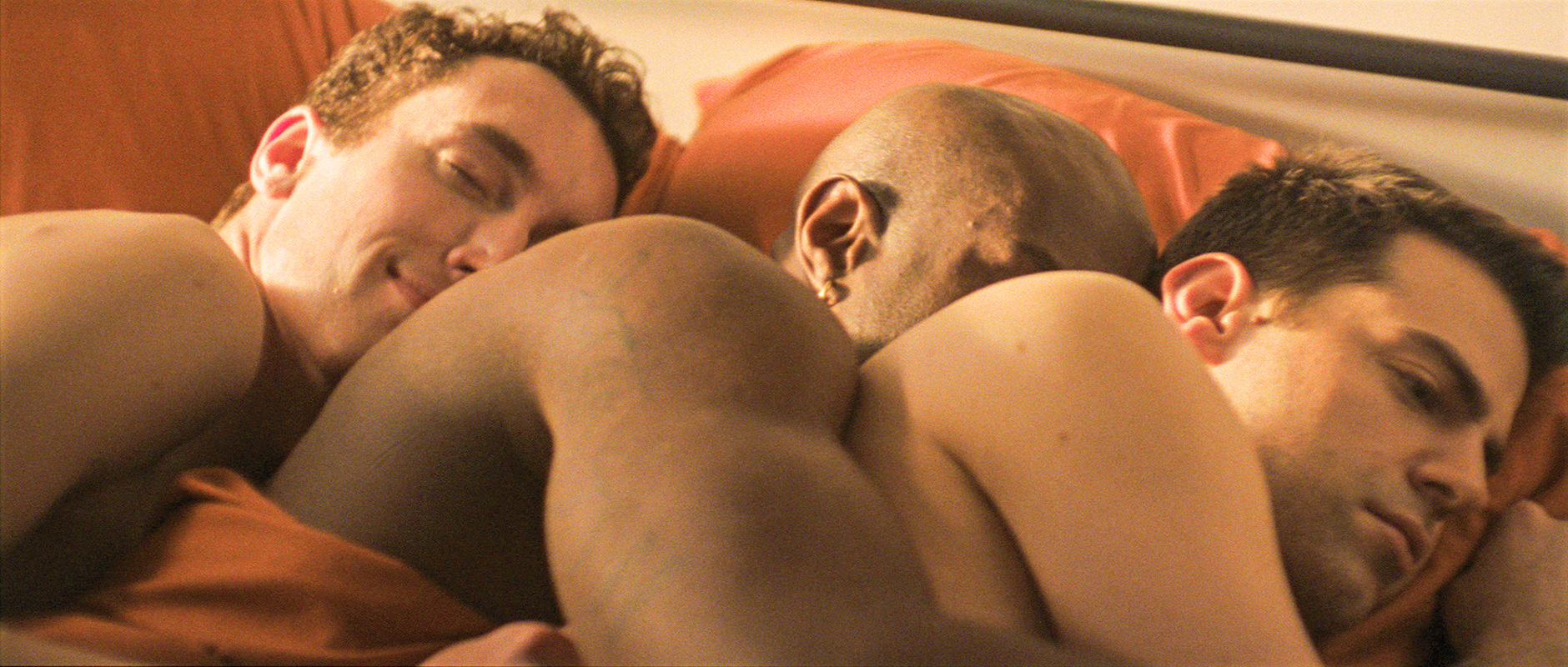
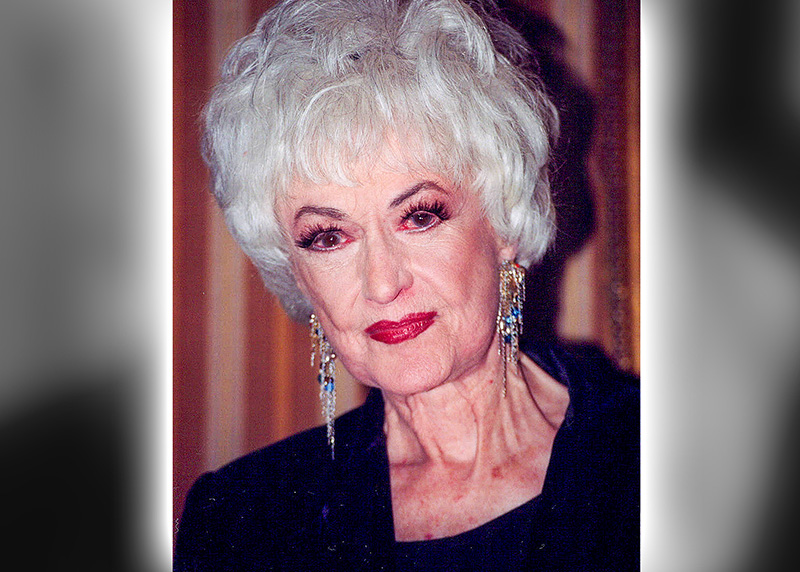















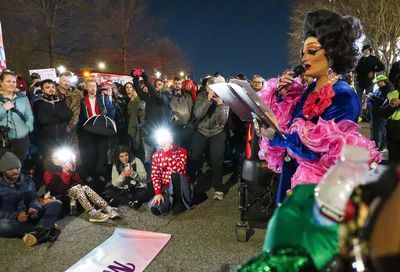
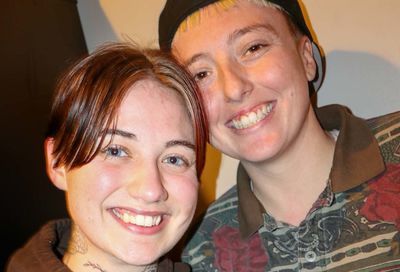
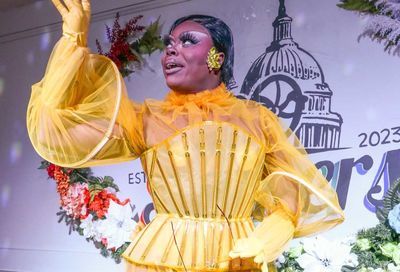
You must be logged in to post a comment.